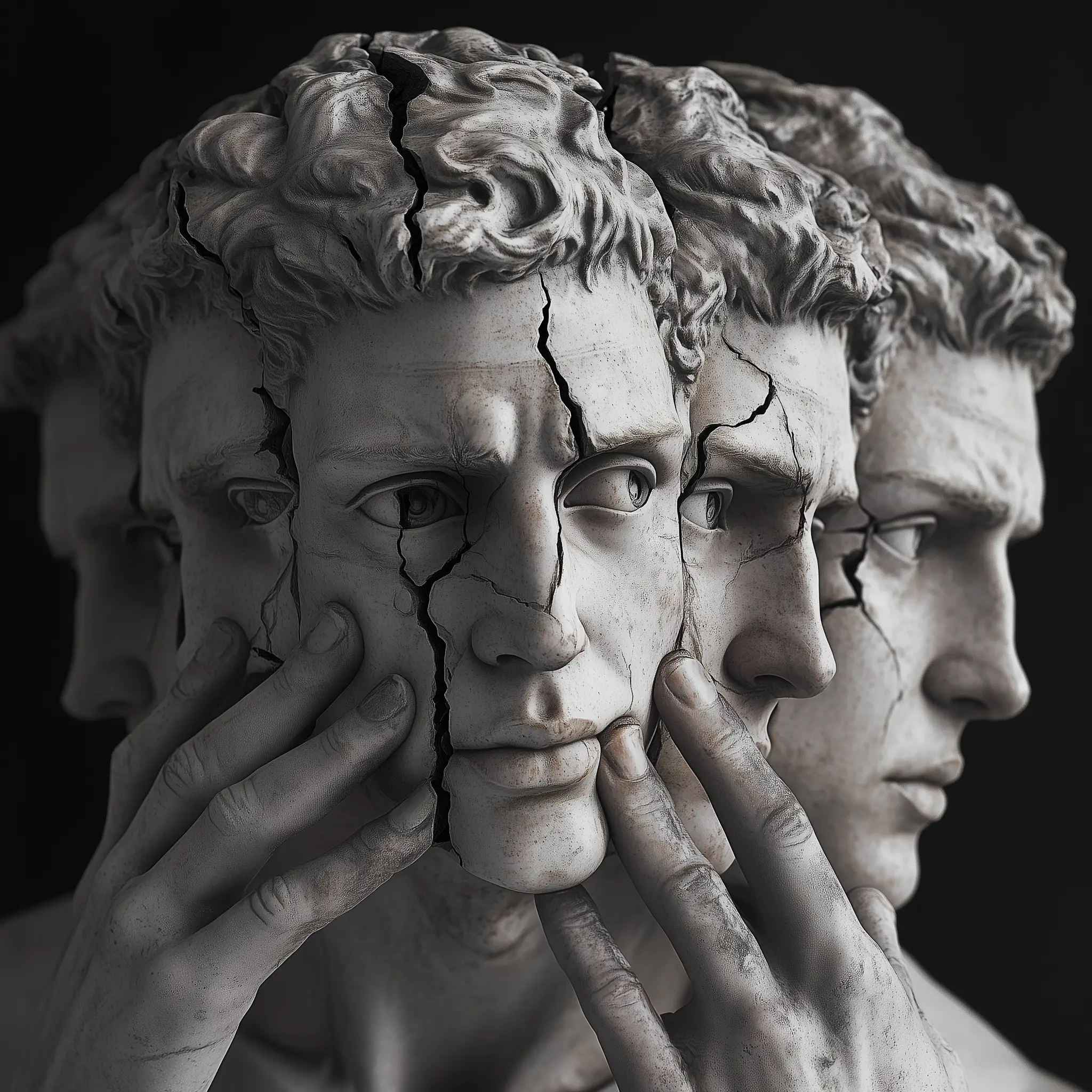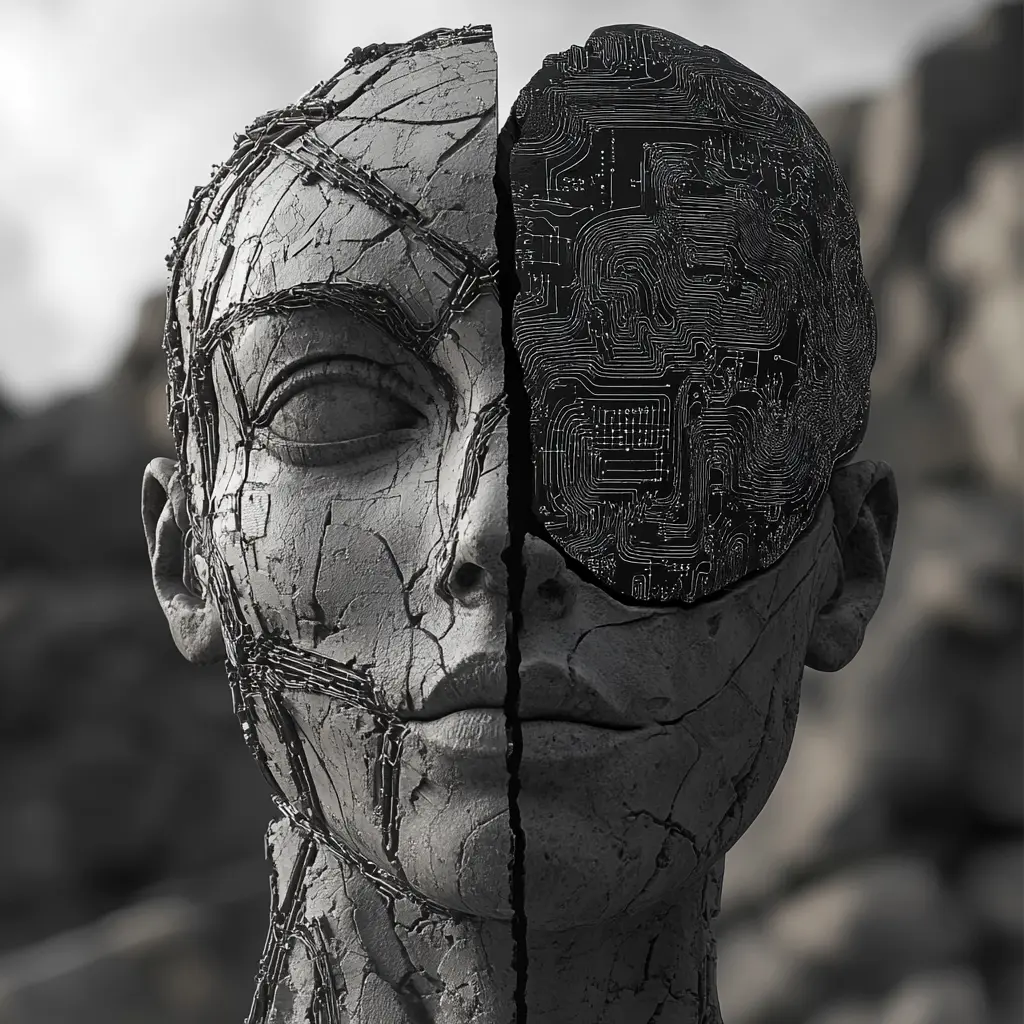Let's cut through the noise. Everyone's suddenly "discovering" they're neurodivergent, and frankly, it's getting ridiculous. TikTok has turned brain differences into personality accessories, and people are collecting diagnoses like they're Pokemon cards. Time for some straight talk. 🎭
Neurodiversity: You Either Are or You Aren't
Here's the brutal truth about neurodiversity: it's binary. You're either neurodivergent or you're not. There's no middle ground, no "a little bit ADHD," no "slightly on the spectrum."
Neurodiversity refers to hardwired brain differences present from birth—ADHD, autism, dyslexia, dyspraxia. These aren't personality quirks you can turn on and off. They're fundamental differences in how your brain developed and processes information. Period.
But here's what's happening: People are desperately searching for explanations for why they feel different, why they struggle, why they don't fit the mold. So they latch onto neurodiversity as their golden ticket to understanding themselves.
What they really need? A proper [personality framework](/enneagram-corner/enneagram-tldr) that explains their patterns without pathologizing their humanity.
The uncomfortable reality? Most of you aren't neurodivergent. You're just human.

The "Special" Problem
Everyone wants to be special. Everyone wants their struggles validated with a clinical explanation. Social media has turned neurodiversity into a trend, complete with aesthetic graphics and relatable memes.
"Oh, I zone out sometimes—must be ADHD!"
"I get overwhelmed in social situations—probably autistic!"
"I'm really organized—definitely OCD!"
Stop it. Just stop. 🛑
Remember that scene from The Incredibles where Dash's mom tells him everyone's special, and he fires back, "Which is another way of saying no one is"? That's exactly what's happening here. If everyone's neurodivergent, then no one is.
Here's the Real Truth: No One Is "Normal"
Want to know a secret? There is no normal. Never has been, never will be.
Every single person on this planet has quirks, struggles, patterns, and ways of being that don't fit some imaginary standard. Every person has moments of inattention, social awkwardness, repetitive behaviors, or intense interests. That's called being human, not being neurodivergent.
The difference is that neurodivergent people experience these things to such a degree that it significantly impacts their daily functioning from childhood onward. The rest of us? We're just navigating the beautiful, messy complexity of human personality.

Personality: The Real Game-Changer
While everyone's busy hunting for neurodivergent labels, they're missing the real goldmine: personality systems. Specifically, the most powerful one we have—the [Enneagram](/enneagram-corner/enneagram-tldr). 💎
Unlike the alphabet soup of online quizzes and surface-level personality tests, the Enneagram doesn't just tell you what you do. It tells you why you do it. And that "why" runs deep—deeper than most people are willing to go.
Understanding your [core motivations and fears](/enneagram-corner/enneagram-strengths-and-weaknesses) provides the roadmap for actual change that diagnostic labels simply can't offer.
Why the Enneagram Dominates Every Other System
The Enneagram is the heavyweight champion of personality systems, and here's why: it's the only system that fearlessly dives into the two things most people spend their entire lives avoiding—emotions and childhood wounds.
Think about it. When do most people actually explore their emotional patterns? When do they examine how their childhood shaped their adult coping mechanisms? Usually only when they're sitting in a therapist's office because something's broken, their relationships are falling apart, or their old strategies have stopped working.
- → There isn't enough time in the day to explore our emotions. We're too busy, too distracted, too uncomfortable with sitting in those feelings. We'd rather scroll TikTok looking for ADHD symptoms than face why we really procrastinate.
- → There isn't enough time in the day to explore our childhood wounds. We'd rather believe our brain is just "wired differently" than confront the uncomfortable truth that maybe, just maybe, our parents' criticism created our perfectionism, or their absence created our need to be indispensable.
For a deeper understanding of how personality patterns can mirror mental health challenges, check out our comprehensive guide on the Enneagram and mental illness, which explores how each type's shadow side can manifest in unhealthy patterns.

The Enneagram Doesn't Let You Hide
Other personality systems let you stay comfortable. "Oh, I'm an introvert!" "I'm a visual learner!" "I'm left-brained!" These labels explain surface behaviors without requiring any real self-examination.
The Enneagram? It grabs you by the shoulders and forces you to look at your deepest motivations, your hidden fears, your unconscious patterns. It asks the questions you don't want to answer:
- • What are you really afraid of?
- • How did your childhood create your adult strategies?
- • What do you do when you're stressed that you don't even realize you're doing?
- • Why do you really act the way you act?
The Real Work Starts Here
Here's what the neurodiversity trend misses: knowing you have ADHD doesn't automatically fix your procrastination. Getting an autism diagnosis doesn't suddenly make social situations easier. Labels without understanding are just expensive ways to stay stuck.
But understanding your Enneagram type? That's actionable intelligence. That's a roadmap to actual change. 🗺️
When you understand that your chronic people-pleasing comes from a deep fear of conflict (hello, Type 9), you can start making different choices. When you realize your perfectionism is actually about avoiding criticism (looking at you, Type 1), you can begin to ease up on yourself.
Stop Hunting for Labels, Start Hunting for Truth
The neurodiversity trend will fade, just like every other social media obsession. But your personality patterns? Those are with you for life. The question is whether you're going to understand them or let them unconsciously run your life.
Here's my challenge: 🎯
- • Stop trying to find the perfect diagnostic label to explain why you're different
- • Start asking why you became the person you are
- • Stop looking for external validation of your struggles
- • Start looking inward at the patterns that actually govern your daily life
- • Ask yourself a real question on 9takes and see how different personality types respond—you'll gain more self-awareness from diverse perspectives than any diagnostic label could give you
The Enneagram won't give you a neat little box to put yourself in. It'll give you something far more valuable: the uncomfortable, transformative truth about who you really are and why you do what you do.
And unlike a neurodiversity diagnosis, that truth comes with a roadmap for change.
Ready to stop making excuses and start making progress? The Enneagram is waiting. But fair warning—it's not going to tell you what you want to hear. It's going to tell you what you need to hear.
And that makes all the difference.
Related Reading
- Enneagram and ADHD: Which Types Struggle Most – How ADHD intersects with each Enneagram type, plus type-specific coping strategies
- Mental Health Risks by Enneagram Type – Understanding each type’s predispositions
